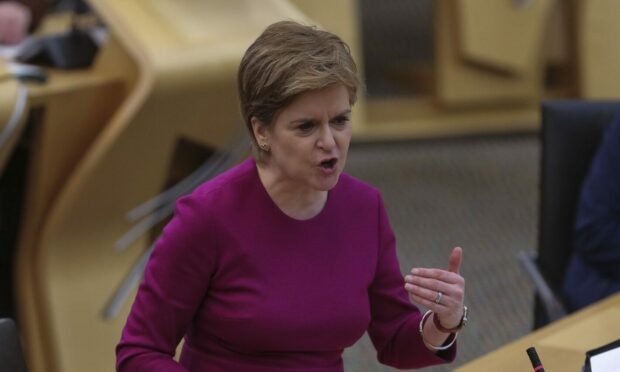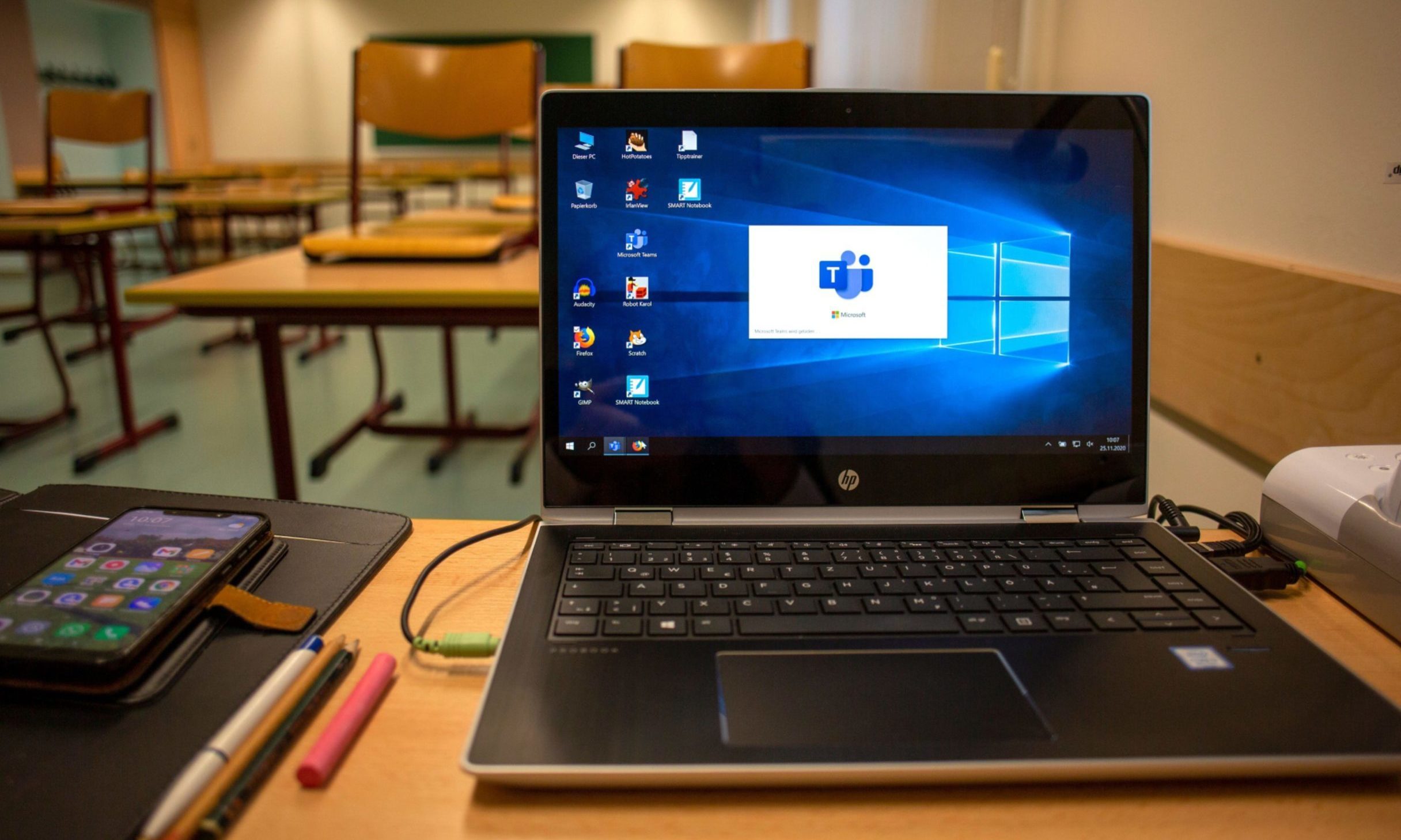Nicola Sturgeon defended her government’s performance in dealing with the pandemic, climate change and education as she was put on the spot by senior MSPs at Holyrood.
In the first session of its kind since the pandemic, the SNP leader was criticised by rivals over key policy promises and decisions on Covid rules.
Here’s all you need to know from today’s session.
Controversial Covid laws extended
The first minister was grilled on SNP plans to make emergency Covid laws permanent as the pandemic recedes.
The Scottish Government recently published proposed laws which would allow them to reintroduce school shutdowns and Covid curbs if another variant or health threat emerges.
SNP rivals branded the policy plans a “power grab” and said the ability to put forward emergency legislation should only be temporary.
Ms Sturgeon said the Scottish Government were often forced to “act quickly” as virus cases often soared at unpredictable rates.
But she claimed that it remained “absolutely vital” for MSPs to be able to scrutinise lockdown curbs where possible despite attempts to enshrine emergency powers in law.
You don’t want to operate through emergency legislation if you don’t have to.
– Nicola Sturgeon
The SNP leader said: “We have to be mindful of the appropriate balance between government decision and parliamentary scrutiny. The latter is absolutely vital even in emergency situations.
“But we also have to recognise that in emergency situations governments have to act quickly.
“I think the more fit for purpose your existing legislative framework is, the less need there will be in reality to act on an emergency basis.”
Ms Sturgeon said the pandemic showed it is necessary for Holyrood to be able to speed up current processes, which can take more than 40 days, when it comes to making long-term laws.
Brexit ‘power grab’ claims
The first minister claimed the Tory government’s post-Brexit Internal Market Act could put “significant constraints” on devolution in Scotland.
She also fears that the Westminster plan could hamper Scottish Government climate change targets, such as plans to cut down on single use plastics.
The SNP leader said: “Potentially the Internal Market Act could make it impossible to apply that ban to products that are produced elsewhere in the UK and come into Scotland. That’s just one example.
“How this parliament chooses to exercise those powers, in this context as part of our journey to net zero, could be completely overridden by decisions of the UK Government. It is a power grab.”
The Tories have repeatedly denied SNP claims that their bill could undermine devolution and instead say it will simplify lawmaking processes.
Row over free laptops for pupils
SNP deputy first minister John Swinney promised last March every schoolkid in Scotland would receive a free laptop or tablet.
The government policy aimed at tackling digital exclusion came after children across the country struggled to study from home while schools were shut due to Covid.
But the speed of the rollout has been criticised, with data last week showing just over one in ten kids in the north of Scotland have been given a laptop so far.
Nicola Sturgeon defended the policy and said the promise to deliver digital devices to kids would come over the five-year parliament.
In a dig at rivals, she said: “We made a manifesto commitment to deliver something over the course of this parliament.
“If it’s such an important commitment, it’s perhaps for others to answer why it wasn’t in other parties’ manifestos.”
Clashing with Tory MSP Stephen Kerr over the issue, she said the Conservatives south of the border were trying to drag Scotland backwards.
How can homes be better insulated?
Ms Sturgeon came under pressure over government plans to decarbonise homes across Scotland.
The SNP want Scotland to be “net zero” in terms of their impact on the environment by 2045, and ensuring homes are well-insulated will be a key part of that.
Tory MSP Dean Lockhart claimed council bosses fear they do not have enough money to push ahead with the plans.
The first minister admitted there would be “significant challenges” in the years ahead to meet decarbonisation targets but denied funds for local authorities had been cut.
She said: “This is a massive obligation. It is central to meeting our net zero targets. Public money will be a key part of how we fund that.
“We have already made commitments to funding for the duration of this parliament. Our efforts have to be to minimise the financial burden on individuals.”

